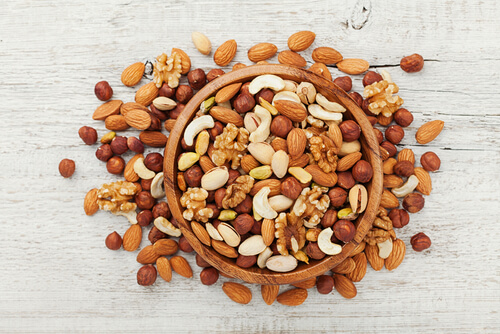The Role of Nuts in Weight Loss

Weight loss gurus and researchers have been trying to determine if nuts are good for weight loss for quite a few years now – it has been a tough nut to crack. Puns notwithstanding, we now know that nuts are in fact one of the greatest weight loss tools out there. There’s only one catch; you have to retain great portion control when consuming nuts. It is extremely easy to over eat nuts because they’re small, bite sized, and delicious. Before you know it, you may have grabbed 5 to 10 handfuls of these crunchy wonders, and at that point they’re not helping you lose weight, they’re helping you gain it.
Nuts have everything your body needs – If we exclude over indulgence however, it’s safe to say that nuts have everything the body needs to help you lose weight. They are packed with nutrients, protein, monounsaturated fats, fiber, folic acid, antioxidants, copper, and magnesium. These nutrients not only help you to regulate your weight, but they also help prevent the onset of type 2 diabetes, and heart disease. The latter two benefits are just icing on the cake.
All you need to know about the fats in nuts – The idea that nuts are bad for weight loss originated with the fact that they are high in fats and calories. But the calories are the result of the monounsaturated and polyunsaturated fats which are actually good heart healthy fats. The bad fats that people fear are trans fats – the ones that end up giving you heart attacks and are found in ingredients like lard. The good fats found in nuts will keep your heart healthy; and a healthy heart is needed to be able to complete exercises and maintain an active lifestyle, which will ultimately lead to your body losing weight.
Why weight watchers should include nuts – The protein levels in nuts are also extremely high. Protein helps to boost your metabolism and the thermic effect in the body. Consuming protein also helps to reduce your appetite which ultimately helps you to ingest fewer calories. And it takes much more energy for your body to digest protein than other types of calories, meaning your body actually burns more protein calories than it consumes.

